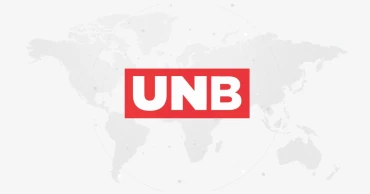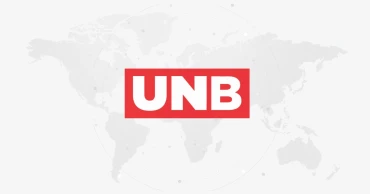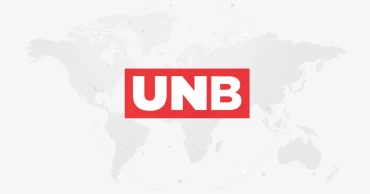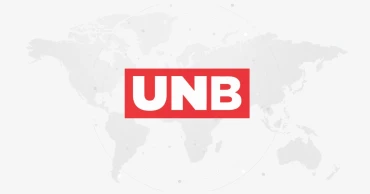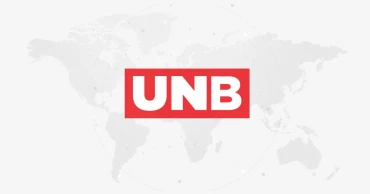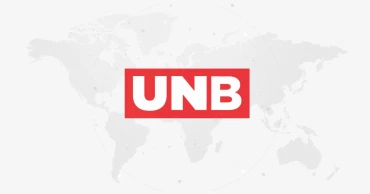IFC
Sarvesh named IFC’s new Regional Vice President for Asia, Pacific
Sarvesh Suri, who is named IFC’s Regional Vice President for Asia and the Pacific, said his focus will be on maximising IFC's toolkit of private sector solutions to create jobs.
‘‘Countries throughout Asia and the Pacific face complex and varied issues,’’ Suri acknowledges, noting that what unites people across the region is that they all want the dignity of a job -- livelihoods to support themselves and their families.
"My focus therefore will be on maximising IFC's toolkit of private sector solutions to create jobs. We can do this by mobilising private capital and pursuing innovative financing instruments. We can strengthen local capital markets. We can make equity investments for greater impact. And we can invest in micro-, small-, and medium-enterprises as engines of job creation," he said in a statement on Monday.’
Suri brings 25 years of global investment and development expertise as well as a proven track record of fostering public-private collaborations.
In making the announcement, IFC confirmed that Suri will strategically lead all investment and advisory operations in the region by mobilising the private sector to address complex development challenges and create jobs.
As part of one World Bank Group, Suri will oversee IFC’s team working from India to the Pacific Islands, who are designing private sector solutions in the financial, manufacturing, agribusiness, services as well as infrastructure and natural resources sectors to deliver transformative change for communities and businesses. He will be based in Singapore.
Two new Division Directors will support Suri in the region: Keiko Miwa, based in Jakarta, Indonesia, will manage South West Asia and Pacific Islands and, effective February 1, 2026, Arnaud Dupoizat, based in Hong Kong SAR, China, will oversee East Asia.
‘’It is my genuine privilege to return home to Asia for a role that will allow me to make a meaningful and lasting difference in a region that has shaped me personally and professionally,’’ shares Suri.
‘’Asia is where I grew up and first worked, and I am deeply humbled by the opportunity to bring together the capabilities of the public and private sectors to tackle the pressing development challenges of the region at scale.’’
Prior to his appointment, Suri was IFC’s Regional Industry Director for Infrastructure and Natural Resources, based in Johannesburg, South Africa, during which time he played an instrumental role in launching Mission 300.
He spent six years of his World Bank Group career at the Multilateral Investment Guarantee Agency (MIGA) as Director of Operations, where he managed global risk mitigation products for cross-border investments into developing countries.
Before MIGA, Suri spent 15 years at IFC in various leadership positions, including as Senior Regional Manager overseeing business operations in Indonesia, Thailand, Malaysia, Singapore and Papua New Guinea, based in Jakarta.
An Indian national, Suri holds a Post-Graduate Diploma in Business Management from the Indian Institute of Management, Ahmedabad and a Bachelor's degree in Mechanical Engineering from Delhi University.
IFC urges political parties to include water issues in election manifestos
IFC — a member of the World Bank Group — is the largest global development institution focused on the private sector in emerging markets.
In fiscal year 2025, IFC committed a record $71.7 billion to private companies and financial institutions in developing countries, leveraging private sector solutions and mobilizing private capital to create a world free of poverty on a livable planet.
1 month ago
MRA, IFC ink deal to digitise microcredit and boost housing loans
The Microcredit Regulatory Authority (MRA) and International Finance Corporation (IFC) signed a deal for digital transformation in microcredit and enhanced housing loan facilities.
Under the program IFC will finance to enhance the capacity of microfinance institutions and the Microcredit Regulatory Authority (MRA) providing short- and medium-term housing loans and digital financial services (DFS) in Bangladesh’s microfinance sector.
The MRA and the IFC have signed a project agreement worth approximately US $3.5 lakh, held at MRA headquarters in the capital on Wednesday.
Banks' CSR spending declines by 33 %, blame goes to loan scams
Prof Mohammad Helal Uddin, Executive Vice Chairman of MRA, and Mehdi Cherkaoui, South Asia Manager (FIG Upstream and Advisory) of IFC, signed the project document titled “Bangladesh Microfinance Sector Development (BMSD)”.
Md Saeed Kutub, additional secretary, graced the event as the guest of honour, while Prof Mohammad Helal Uddin presided over the ceremony attended by senior officials from the Ministry of Finance, Bangladesh Bank, CEOs and representatives of microfinance institutions, and officials from both IFC and MRA.
10 months ago
International Farakka Committee Bangladesh forms new executive committee
The International Farakka Committee (IFC) Bangladesh formed a new executive committee on Friday, appointing IFC coordinator Mostafa Kamal Majumder as president and Sayed Mahmud Hasan Mukut as general secretary.
The extended meeting of IFC took place at Kusumpur under Sirajdikhan Upazila of Bikrampur, where outgoing President Prof. Jasim Uddin Ahmed unanimously formed the committee. IFC New York Chairman Sayed Tipu Sultan attended the meeting as the chief guest.
Bangladesh’s first climate-smart steel plant to be built with IFC fund
The committee appointed Prof. Jasim Uddin Ahmad as chief adviser, along with four advisers: Bulbul Khan Mahbub, Syed Irfanul Bari, Bahni Shikha Jamali, Elahi Newaz Khan, and Rafiqul Islam Bablu.
Dr. Nazma Ahmad assumed the role of Senior Vice-President, while Khandakar Nazimuddin Ahmed and Salem Suleri became Vice-Presidents. Ataur Rahman Ata took on the position of Organising Secretary, Jamaluddin Jamal became Publicity Secretary, and Rafiqul Islam Azad was named Joint General Secretary.
IFC to partner with MGI to set up country's first climate-smart steel plant
The committee also included eleven members: Abdul Hye Sikdar, Abu Sayeed Shaheen, Mahmudul Huq Sanu, Sadrul Hasan, Nafisa Daulah, Syed Murshed, Kazi Mostafa Kamal, Prof. Azad Khan, Prof. Ananya Laboni, Nabil Jasim Ahmad, and Shahidul Islam.
Additionally, the meeting selected four district conveners: Abu Bakar Siddique from Kurigram, Bari Sarkar from Chilmari, Advocate Mujibur Rahman from Munshiganj, and Aziz Ahmed from Rangunia, Chattogram.
1 year ago
IFC to partner with MGI to set up country's first climate-smart steel plant
The International Finance Corporation (IFC), a member of the World Bank Group, has partnered with Meghna Re-Rolling & Steel Mills Limited (MRSL), a sister concern of Meghna Group of Industries (MGI) to establish Bangladesh’s first climate-smart steel plant.
This state-of-the-art facility will produce 1.5 million metric tons of steel annually—which represents around 20% of Bangladesh’s current annual demand—using 100% recycled scrap, supporting the country’s economic growth while tackling climate challenges, according to a press release on Monday.
Supported by a financing package of $100 million, this transformative project is set to deliver significant economic, environmental, and social benefits, said the release.
By leveraging advanced technology, it will reduce carbon emissions compared to traditional steel production, while creating over 20,000 direct and indirect jobs across the value chain, driving growth and sustainability.
Stock markets return to positive territory as economy is getting sustainability: Analysts
IFC’s Country Manager for Bangladesh, Bhutan and Nepal Martin Holtmann said that Bangladesh’s steel industry is critical for building infrastructure that drives sustainable growth.
“This project represents a major leap forward, not only in climate-smart manufacturing but also in job creation and industrial advancement. We are excited to contribute to the transformation of Bangladesh’s industrial landscape, supporting the nation’s journey towards a greener, more resilient future.”
This project marks a major milestone for Bangladesh’s steel industry, aligning with the Paris Agreement and meeting the criteria for 100% climate finance under global climate tracking principles.
Additionally, IFC and MRSL are collaborating to develop a comprehensive decarbonization roadmap, setting a new benchmark for sustainability in the country’s industrial sector.
World Bank approves $1.16 billion for Bangladesh
The Chairman and Managing Director of MGI Mostafa Kamal said this investment not only strengthens their capacity to produce high-quality, climate-smart steel but also represents a significant milestone for country’s economic and industrial growth.
The investment also aligns with the World Bank Group’s vision for Green, Resilient, and Inclusive Development (GRID), promoting climate-smart infrastructure, economic diversification, and industrial competitiveness.
1 year ago
PM's principal secretary urges China and IFC to boost investments in Bangladesh
Prime Minister's Principal Secretary Md Tofazzel Hossain Miah has urged China and the International Finance Corporation (IFC) to increase their investments in Bangladesh.
Tofazzel made the call when Chinese Ambassador to Bangladesh Yao Wen and International Finance Corporation (IFC) Country Manager Martin Holtmann paid separate courtesy calls on him at the Prime Minister's office on Thursday afternoon.
NAM Summit: FM Hasan Mahmud leading Bangladesh delegation
During the courtesy call, the Chinese ambassador thanked the Bangladesh government for holding the 12th parliamentary election in a free and fair manner and vowed to work with the new government in different sectors of Bangladesh.
Tofazzel thanked China for its significant role in the ongoing development activities of Bangladesh and for sending observers to the 12th parliamentary elections. He urged the envoy to increase Chinese investment in Bangladesh.
US rules out notion of not recognising Hasina government
In a separate meeting PM’s principal secretary requested the IFC country manager to increase private sector investment in Bangladesh and sought IFC's all-out support in implementing the “National Logistics Development Policy” proposed by the government of Bangladesh.
He also requested IFC's cooperation in expanding riverine accessibility in Bangladesh and construction of ports and jetties.
NAM Summit: Dhaka calls for greater unity, solidarity for shared prosperity
IFC Country Manager Holtmann expressed interest in providing loans to the lower and middle class people in Bangladesh's housing sector.
Officials from the Prime Minister's Office, China Embassy and IFC were present during the courtesy calls.
2 years ago
IFC pays tribute to Atiqur Rahman Salu, Bangladeshi leader of water movement, as he dies in US
The International Farakka Committee (IFC) is deeply saddened by the sudden demise of Atiqur Rahman Salu, a valiant freedom fighter and leader of Bangladesh's water-environment movement and Chairman of IFC.
He had been suffering from cancer and breathed his last on December 5 at a hospital in New Jersey, USA at 6 pm Bangladesh time while undergoing treatment for pneumonia.
Dengue: 2 more die; 537 hospitalised in 24hrs
In a joint statement, the IFC leaders said, "One of the leaders of the 11-point student movement of 1969, general secretary of East Pakistan Biplabi Chhatra Union, reader of the Swadhin Purba Bangla resolution on February 22, 1970 at Paltan Maidan, a student leader enjoying blessings of Maulana Abdul Hamid Khan Bhasani and leader of Bangladesh community in the United States, Atiqur Rahman Salu has given a new dimension to the river-water rights movement of Bangladesh."
Under his leadership, IFC organised three international seminars and views-exchange meetings in Dhaka with water experts and activists from Bangladesh, India, Nepal and Pakistan to build public opinion and linkages among different peoples of the subcontinent to ensure sustainable management of the Himalayan rivers.
Because of his efforts, the national political leaders of Bangladesh came on the same stage at numerous national discussion-meetings and spoke to protect the river-water rights. And the protection of river-water rights became a national demand.
Woman dies in DB custody in Narsingdi
Under his leadership, an IFC delegation presented to an Indian Assembly of Expert in New Delhi and to former Chief Minister of Kolkata Jyoti Basu the urgency of keeping the common rivers - source of 90 percent fresh water - alive to protect the physical existence and environment of world's largest delta, Bangladesh.
IFC delegations met the members of the US Congress, Chinese leaders in Beijing and the 6th Committee of the United Nations to mobilise world opinion in favour of protecting the river water-rights of Bangladesh.
It is to be noted that the Ganges, the Brahmaputra and the Meghna coming down the Himalayas flow through Bangladesh into the sea.
If the natural flow of rivers continues to be denied, irreparable damage to the environment, lives and livelihoods of the people of Bangladesh cannot be stopped.
Five prominent women named as Begum Rokeya 2023 awardees
As in the Ganges-dependent Khulna region, the Teesta-Brahmaputra-dependent northern region and the Meghna-dependent eastern region will also face damage to agriculture, fisheries, agro-industry, industry, commerce, biodiversity and ecosystem. The number of environmentally displaced people will increase alarmingly.
Under the leadership of Atiqur Rahman Salu, imbued with the ideology of Maulana Bhasani, a river-environment rally of at least five lakh people was held in Chilmari after a long march from Dhaka on May 4, 2005.
The IFC leaders paid tribute to the memory of Atiqur Rahman Salu, vowed to continue his unfinished work and conveyed their condolences to his widow Farida Eusofzai and other members of the bereaved family. They urged the people to pray for the peace of his soul.
The statement was signed by IFC New York Secretary General Syed Tipu Sultan, Joint Secretary General Mohammad Hossain Khan, IFC Bangladesh President Professor Jashim Uddin Ahmad, General Secretary Syed Irfanul Bari and IFC Coordinator Mostafa Kamal Majumder.
2 years ago
Micro, small, medium enterprises in Bangladesh face a financing gap of $2.8 billion
In Bangladesh, the micro, small, and medium enterprises (MSME) sector faces a financing gap of $2.8 billion, according to IFC, a member of the World Bank Group.
With nearly 10 million SMEs contributing to about 25 percent of the country's GDP, enhancing SME financing is key to boosting economic growth, it said on Tuesday (November 28, 2023).
To explore the various aspects of financing for small and medium enterprises (SMEs) in Bangladesh, IFC, in association with Bangladesh Bank and the government of Norway, organized a conference in Dhaka.
Read: BTCCI to promote Bangladesh as 'gateway to South Asia' for Thailand
Experts, policymakers, and stakeholders from across the world shared their insights to help foster a resilient and inclusive environment for SME financing in the country.
The event touched upon the partnership between IFC and Bangladesh Bank, results of an impact assessment study carried out on women-owned SMEs, next-generation SME financing trends, and global best practices in SME financing.
It also addressed the challenges and opportunities in SME financing, identifying solutions and innovations in light of global SME finance developments.
Highlighting the joint efforts of IFC and Bangladesh Bank in SME financing, the conference showcased initiatives, including developing the country’s first Credit Guarantee Scheme (CGS), reforming an SME finance policy, and strengthening the sector’s capacity.
IFC’s impact study on CGS, supported by the Norwegian Embassy, revealed that the number of first-time borrowers receiving loans in cottage, micro, and small enterprises and the average ticket size of the loans for women-owned micro and small enterprises was statistically significantly higher after the launch of CGS than ever before. Women entrepreneurs who received CGS-backed loans reported that it helped their businesses survive amid crises and provided new impetus to thrive.
Speaking at the conference as the chief guest, Governor of Bangladesh Bank, Abdur Rouf Talukder, said that recognizing that cottage, micro, small and medium enterprises (CMSMEs) are the backbone of society, Bangladesh Bank is spearheading several initiatives to mainstream medium and small businesses into the financial landscape.
"This includes establishing a new and dedicated Credit Guarantee Department that has already piloted an online platform—the Credit Guarantee Information Management System—to help lodge applications seamlessly. We are at an important crossroads of economic development and must ensure that everyone, especially those who often get left out, can be part of the financial picture," he said.
Read: BGMEA chief for stepping up economic diplomacy to boost Bangladesh-US trade
Deputy Governor of Bangladesh Bank, Abu Farah Md. Nasser, said a strong SME sector is akin to a superpower for creating jobs, export earnings, and productive proficiency.
"Now more than ever, we need to work together to enhance credit guarantee schemes, tap into alternative databases for SME lending, and ultimately fast-track CMSME finance in Bangladesh. We want to bridge the gap between rich and poor, make sure men and women have equal opportunities, and boost economic growth across the country," he said.
Martin Holtmann, IFC Country Manager for Bangladesh, Bhutan, and Nepal, said Bangladesh is rapidly accelerating its economic development, and creating more and better jobs is a priority they share with the country as long-term partners since 1985.
"IFC’s collaboration with Bangladesh Bank to develop SME solutions highlights a milestone in achieving financial inclusion and economic advancement and underscores the transformative power of partnerships, innovation, and our collective commitment to progress. We aim to increase access to financial products that are affordable, sustainable, and responsive to risks while developing institutional, operational, and policy frameworks to ensure the benefits of economic growth permeate every facet of this dynamic nation,” he said.
Espen Rikter-Svendsen, Ambassador of the Royal Norwegian Embassy in Bangladesh, said, “Lack of access to finance is the biggest impediment to the growth of SMEs in Bangladesh, particularly for the women-headed SMEs."
Recognizing and addressing the challenges faced by SMEs and women entrepreneurs is not just a matter of economic significance but also a step towards fostering gender equality, he said.
"It is essential to create an environment that facilitates easier access to finance for SMEs, encourages more women to take on entrepreneurial roles, and provides them with the necessary financial resources to succeed," said the ambassador.
Other participants included Qamar Saleem, CEO of the SME Finance Forum; Abdoulaye Seck, Country Director of the World Bank for Bangladesh and Bhutan; and managing directors and CEOs of leading banking and non-banking financial institutions in Bangladesh.
The event also included technical sessions and panel discussions focusing on global best practices and a future roadmap to accelerate the SME financing market in Bangladesh.
Read more: BGMEA urges Proparco to provide SMEs with the low-cost fund, grant
2 years ago
IFC providing $50 million to BRAC Bank to support trade finance, preservation of jobs
International Finance Corporation (IFC) is providing BRAC Bank Limited a $50 million loan to aid small and medium-sized enterprises (SMEs) recover from the effects of the COVID-19 pandemic.
This investment is set to contribute to the preservation of jobs and bring foreign exchange liquidity into BRAC Bank to help support the working capital and trade finance requirements of the bank’s SME importer and exporter clients.
Also Read: New program by Australia, IFC to mobilise $50 million to support post-COVID inclusive growth in Bangladesh
This investment, along with a similar loan to Prime Bank in February, will also send a positive signal to the market and contribute towards attracting additional international investors to support the foreign exchange financing needs of local banks and SMEs, IFC said.
The financing package is part of IFC's $8 billion global COVID-19 fast-track financing facility to support companies during the ongoing public health crisis. This new investment comes under the Working Capital Solutions (WCS) program of the COVID-19 response envelope, which is providing $2 billion globally to emerging-market banks, enabling them to support struggling firms.
This project will also be supported by the International Development Association's Private Sector Window Blended Finance Facility, which is also rendering aid to IFC's WCS program.
BRAC Bank is Bangladesh’s third-largest private bank and the only SME-focused bank in the country.
Also Read: First project under IFC’s Global Food Security Platform to tackle food insecurity in Bangladesh
"Our SME and corporate clients continue to confront challenges arising from the disruptive effects of COVID-19. The insufficient availability of foreign exchange has additionally impeded their regular trading operations," said Selim R. F. Hussain, the Managing Director and CEO of BRAC Bank.
The aftermath of the COVID-19 pandemic has resulted in a global economic slowdown, influenced by a series of factors, including geo-political events.
“IFC has been supporting the banking sector in export-driven economies like Bangladesh, which have been facing declines in foreign exchange reserves due to various macroeconomic and geopolitical headwinds,” said Joon Young Park, IFC’s Portfolio Manager for South Asia.
Also Read: Prime Bank receives $50m from IFC to support trade, forex liquidity needs in Bangladesh
"IFC plans to continue providing its steadfast support to key banking partners in Bangladesh who have significant SME portfolios, such as BRAC, with whom IFC has had equity and debt commitments over the past 19 years.”
IFC has invested more than $3.6 billion to promote the growth of the private sector in Bangladesh since 2010, thereby creating job opportunities for the country's citizens. And since the beginning of the COVID-19 crisis, IFC has provided over $360 million in working capital solutions and liquidity support to banks and companies in Bangladesh.
Also Read: IFC giving $32.5 million to ensure food security in Bangladesh
"After three long years of grappling with the impact of the pandemic, businesses in Bangladesh continue to face challenging market conditions,” said Martin Holtmann, IFC Country Manager for Bangladesh, Bhutan, and Nepal. “By supporting BRAC Bank, we are continuing our efforts to help Bangladesh recover and foster a resilient post-pandemic economic landscape.”
Also Read: Implement Teesta Project to save people from manmade disasters: IFC
2 years ago
Prime Bank receives $50m from IFC to support trade, forex liquidity needs in Bangladesh
To support export and import-based businesses in coping with global uncertainties induced by the Covid-19 pandemic, International Finance Corporation (IFC) is providing $50 million to Prime Bank Limited in Bangladesh.
This IFC funding will support working capital, trade finance, and foreign exchange liquidity needs of export and import based entities borrowing through Prime Bank’s Offshore Banking unit.
The financing package is part of IFC’s “Fast Track Covid-19 Facility” – a package designed to support countries and private sectors to cope with the impacts of the pandemic under the Working Capital Solutions (WCS) program, according to a media release issued on Monday.
Read More: IFC giving $32.5 million to ensure food security in Bangladesh
IFC has provided a total of $310 million in working capital solutions to banks in Bangladesh and liquidity support to companies since the beginning of the pandemic, including this latest funding to Prime Bank.
Since 2010, IFC has invested over $3.6 billion to help the private sector in Bangladesh grow.This IFC engagement with Prime Bank will also be supported by the International Development Association’s Private Sector Window Blended Finance Facility.
Commercial banks are the largest providers of working capital and foreign exchange trade finance support to manufacturing and infrastructure businesses, key drivers of Bangladesh’s economy.Unexpected turbulence in the global markets has restrained foreign exchange liquidity in the market.
Read More: IFC pledges $6 billion to tackle food insecurity.
With this funding, Prime Bank is expected to extend loans to its export and import-based customers, helping keep businesses afloat, resume exports and preserve jobs.
“IFC’s support reflect resilience of Bangladesh economy and confidence in Prime Bank. IFC has been a valuable partner of Prime Bank since 2014 and this relationship helps us to significantly expand our OBU business. We are really thankful to IFC for its continued support. This fresh funding of USD 50 million targeted for SME clients will help us to grow SME portfolio of the bank,” said Managing Director & CEO of Prime Bank, Hassan O. Rashid.
“It is clear the impacts of Covid-19 are still being felt by a number of businesses in Bangladesh’s key industries, effectively constraining their operating ability,” said Allen Forlemu, Regional Industry Director, Financial Institutions Group, IFC. “This funding package is designed specifically to help ensure businesses in Bangladesh can continue to trade and have access to working capital, helping them maintain operations and preserve jobs. Small and medium-sized businesses, which are the backbone of the country, and have been particularly impacted by the pandemic, are expected to benefit the most from this IFC funding.”
Read More: IFC-led PaCT helped factories cut carbon and water footprints: BGMEA.
3 years ago
IFC giving $32.5 million to ensure food security in Bangladesh
To improve food security in Bangladesh at a time of rising commodity prices amid a global shortfall of staple crops, the International Finance Corporation (IFC) is providing $32.5 million loan to Singapore-based agricultural commodity-trading company Agrocorp International Pte Ltd, which is a leading supplier of wheat and pulses to Bangladesh.
According to IFC, the largest global development institution which is focused on the private sector in emerging markets, is providing an eight-year financing package consisting of a senior secured loan of up to $18 million as well as a concessional loan of $14.5 million from the International Development Association’s Private Sector Window Blended Finance Facility.
At a time when trade financing has been constrained globally amid price instability, the investment will allow Agrocorp to buy and deliver millions of tonnes of wheat and pulses from Australia and Canada to Bangladesh, providing safe, nutritious, and calorie-rich staples to the country at a time of heightened food insecurity. These staples are sold to millers and food processors, which depend on them to produce basic foods for the Bangladeshi population, a media statement by IFC said.
Read more: Bangladesh Bank forms Tk 5000cr refinance scheme to ensure food security
“Agrocorp plays an important role in addressing food security in Asia, which has become more vital with all the recent shocks in global food-supply chains,” said Vijay Iyengar, Chairman and Managing Director, Agrocorp International.
“We are delighted to be partnering with IFC for this loan, which will allow us to scale up our work to provide an even stronger platform to secure food supplies for emerging markets such as Bangladesh,” he said.
“We are pleased that IFC is able to provide financial support for Agrocorp to reinforce its position in global food supply chains, and in this instance to serve the markets in Bangladesh during these challenging times”, said Geoffrey Yeo, Assistant Chief Executive Officer, Enterprise Singapore.
“We are glad that Singapore’s role as a global trade hub has enabled companies like Agrocorp to play an important role in managing global food supplies” he said.
Read more: PMO counting on success of upcoming food security programs
The war in Ukraine has exacerbated food inflation globally, sparked high and volatile energy and fertilizer prices and restrictive trade policies, and has also worsened supply-chain disruptions caused by the COVID-19 pandemic.
Wheat has been particularly affected, as Ukraine and Russia have traditionally accounted for over a quarter of the global-trade volumes.
In addition, about a quarter of Bangladesh’s population of 165 million people face food insecurity due to the impacts of climate change and the rising frequency of natural hazards, such as flooding caused by monsoon rains.
This convergence of crises threatens to drive more people into extreme poverty, magnify hunger and malnutrition, and erase hard-won development gains in the country.
“This investment ensures the supply of essential raw materials to food producers and processors in Bangladesh, allowing the availability of safe, nutritious, and calorie-rich staple foods to be available”, said Hector Gomez Ang, Regional Director for South Asia, IFC. “
The IFC investment is in line with a new $6 billion Global Food Security Platform (GFSP), which aims to mobilise private investment to address the deterioration in food security, particularly in the world’s most vulnerable countries.
Since 2010, IFC has invested over $3.6 billion to help private sector growth in Bangladesh.
3 years ago




